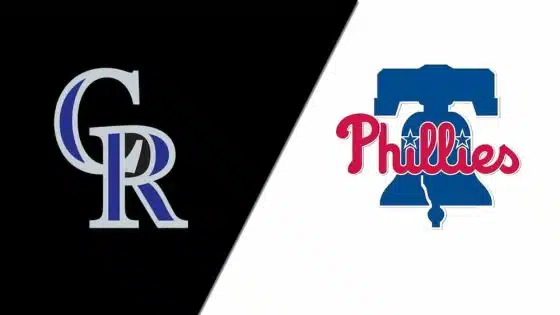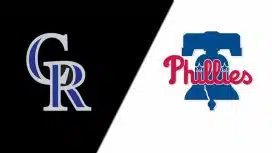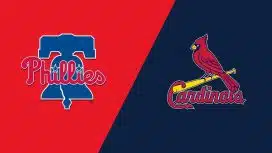By Matt Albertson, Historical Columnist
Pete Rose, despite all his personal faults, was one of the greatest baseball players in history. His signing by the Phillies in 1979 was the club's first high-profile acquisition and it paid off.
The narrative is well known: the Phillies had outstanding teams in the mid-to-late 1970s, but couldn't get past the Reds and Dodgers in the postseason. Mike Schmidt has often said that Rose was the piece who helped the Phillies get to the World Series and win. Despite posting subpar WAR seasons in each of his four seasons in Philadelphia (1.1 WAR total), his attitude and approach to the game were infections and enlightening for the team's core.
Rose started his career with the Reds in 1963 and established himself as a premier player and hitter throughout decade, leading the league in hits in 1965 and 1968 and in runs scored in 1969. He won batting titles in 1968 and 1969 as well. In addition to his talent as a hitter, Rose played with a reckless abandon not seen since the negro leagues or Ty Cobb. Teammate Joe Morgan said of Rose, "Pete played the game, always, for keeps. Every game was the seventh game of the World Series. He had this unbelievable capacity to literally roar through 162 games as if they were each that one single game." Of his playing style, Rose said that "I didn't get to the majors on God-given ability. I got there on hustle, and I have had to hustle to stay…it's the only way I know how to play the game."
One of the most controversial players in the 20th century, he was both selfish and unselfish; selfish for self promotion and stats and unselfish as a team leader on and off the field, picking up checks when the guys were out or changing positions throughout his career to benefit the team.
Rose dominated the 1970s and helped the Cincinnati Reds emerge as one of the most powerful teams of the decade. His Reds captured four pennants and two World Series titles in the decade and remain the last National League team to win back to back World Series.
His best season was 1973 when he won his third batting title, slashing .338/.401/.437 and lead the league in hits with 230.
Career Accomplishments
- All-time hits leader (4,256)
- 17-time All-Star
- National League MVP (1973)
- Rookie of the Year (1963)
- All-time leader in games played (3,562), plate appearances (15,890) and at-bats (14,053)
- Two-time Gold Glove Award winner
- Silver Slugger Award winner
- Three-time World Series champion: 1975, 1976, and 1980
- World Series MVP (1975)
*Awards were not factored into the formula
Career-Defining Moment
Rose has numerous career-defining moments: World Series MVP in 1975, his heads-up back up of Bob Boone in the ninth inning of Game 5 of the 1980 World Series, passing Rogers Hornsby as the National League's all-time hit leader, and passing Ty Cobb as the major league all-time hit leader. If the narrative ended there, Pete Rose would be a household name. Unfortunately he broke baseball's oldest sin – betting on the game, which has come to define Rose to this day.
But for our purposes we're focusing on his playing career. It's hard to pick one milestone over the other, but his greatest personal career accomplishment is easily when he passed Cobb as the all-time hit king.
Reasoning for ranking
Rose scored 60 points in our formula. He totaled 79.1 WAR, averaging 3.23 WAR over his 24 seasons. He had 16 seasons of 2+ WAR, eight seasons at 5+ WAR and one season at 8+ WAR, totaling 45 points. His .303 batting average ranks 173rd all-time, his 4,256 hits ranks first all-time, his 746 doubles ranks second all-time, his 135 triples ranks 75th all-time and his 1,314 RBI ranks 103rd all-time, totaling 15 points
Rose scored an eight on our subjective importance scale because he was the highest profile signing in team history and helped the club win its first championship in team history.
Explanation of scientific formula
The player rankings formula combines both traditional and advanced statistics/metrics and assigns a point total to each category.
Previous Players
- No. 25 – Ryan Howard
- No. 24 – Roy Oswalt
- No. 23 – Kenny Lofton
- No. 22 – Jimmy Rollins
- No. 21 – Cole Hamels
- No. 20 - Cliff Lee
- No. 19 – Tony Perez
- No. 18 – Bobby Abreu
- No. 17 – Scott Rolen
- No. 16 – Richie Ashburn
- No. 15 – Chase Utley
- No. 14 – Ryne Sandberg
- No. 13 – Dick Allen
- No. 12 – Jim Bunning
- No. 11 – Fergie Jenkins
- No. 10 – Jim Thome
- No. 9 – Curt Schilling
- No. 8 – Roy Halladay
- No. 7 – Robin Roberts
- No. 6 – Joe Morgan
- No. 5 – Pedro Martinez





